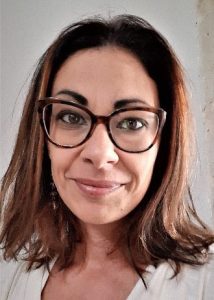An Integrated Framework for Neurodevelopmental Disorders: A Targeted Approach to Neuromodulation and Beyond
Emanuela Russo, PhD, BCIA, QEEG-D
1-day Workshop
Date: March 28, 2026
Workshop Title
An Integrated Framework for Neurodevelopmental Disorders: A Targeted Approach to Neuromodulation and Beyond
Workshop Description
It is widely understood that a one-size-fits-all model for neurodevelopmental disorders (NDDs) is ineffective. This workshop is designed to equip practitioners with a critical framework for evaluating and implementing specific therapeutic modalities based on a patient’s unique and evolving clinical profile. We will delve into the nuances of a range of non-invasive tools, including neurofeedback, neuromodulation, photobiomodulation, and brainwave entrainment. The focus will be on investigating the specific potential and weaknesses of each tool, highlighting that a successful multi-modal strategy is not static. Instead, it must be continuously adapted and differentiated over the course of treatment, ensuring that the right modality is chosen at the right time to achieve successful patient compliance and outcomes before broadening therapeutic options. We will also underscore the critical role of the microbiota-gut-brain axis, demonstrating how this foundational layer of physiological health should inform and guide all diagnostic and therapeutic decisions. By integrating these targeted physiological and neuromodulatory interventions with a deep understanding of the patient’s biological and behavioral needs, practitioners will be empowered to navigate the complexities of NDDs and their comorbidities, thereby creating more holistic and effective treatment plans that go beyond symptom management to address the underlying mechanisms of these conditions. The ultimate goal is to move beyond rigid protocols and embrace a dynamic, evidence-based roadmap for lasting patient success.
Learning Objectives
- 1) Recognize Shared Neurobiological Mechanisms: Understand the shared etiological and neurobiological underpinnings of NDDs, such as neuroinflammation and altered neural circuitry, to inform a more holistic and integrated approach to diagnosis and intervention.
2) Evaluate Nuanced Therapeutic Applications: Critically evaluate the potential and weaknesses of diverse neuro-modalities, including neurofeedback, neuromodulation, and brainwave entrainment, to apply a targeted, evidence-based approach to different NDDs and their comorbidities.
3) Understand Dynamic Protocols: Understand that therapeutic protocols are not static, and learn to differentiate and adapt an intervention plan over the course of treatment based on a patient’s evolving needs and responses to a multi-modal approach.
4) Incorporate Foundational Health Factors: Identify the role of the gut-brain axis microbiome as a foundational component of a comprehensive diagnostic and therapeutic plan, and evaluate the clinical evidence for using probiotics and dietary interventions in patients with NDDs.
About Emanuela Russo
Emanuela Russo is a Clinical Psychologist, qEEGD and BCIA Certified, with over 15 years’ experience in clinical and experimental research in human brain activity and its utilization as a clinical investigational tool. She is focused on the identification of EEG biomarkers within broad categories of disorders (PTSD, Depression, MCI, ASD) and how these indices can be remarkable in the development of personalised interventions. She is specialized in the utilization of clinical investigational tools for the evaluation of brain dysfunction. In 2020, she co-founded Aequilibria Health, a digital tech startup focused on healthy brain aging.

- Website
